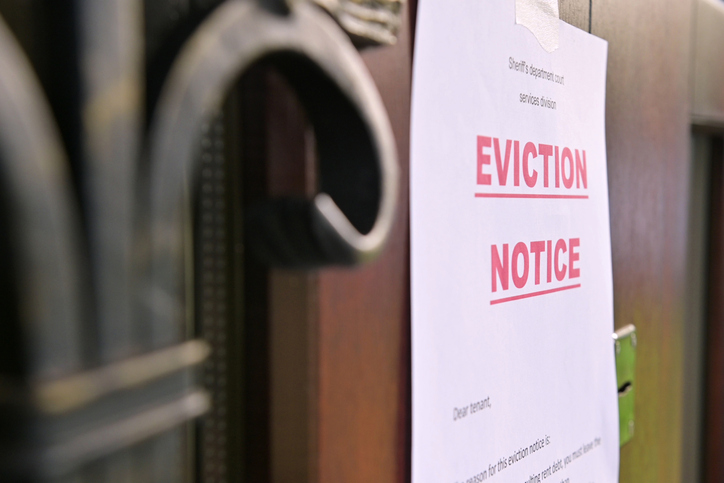The process of screening potential tenants for a rental property can be overwhelming and time-consuming for landlords and property managers. However, it is crucial to ensure that tenants are reliable and trustworthy to avoid legal issues and minimize risks associated with renting out properties. This is where tenant screening centers come in – as a one-stop-shop for comprehensive tenant screening services. From criminal background checks, credit checks, and employment verification to rental history checks and reference checks, tenant screening centers offer a range of services to help landlords make informed decisions about their tenants. In this article, we’ll explore the benefits of using a tenant screening center for landlords and property managers.
- Why screening tenants is important
- How to choose a tenant screening service:
- What to look for when choosing a tenant screening service:
- How to use a tenant screening service
- What to do if you have a bad tenant
- How to evict a tenant
- How to avoid tenant screening scams
- Conclusion
1.Why screening tenants is important:
Screening potential tenants is a critical part of the rental process for landlords and property managers. It helps ensure that the tenant is a good fit for the property and can afford the rent. Tenant screening can help minimize risks associated with renting out properties, such as property damage, late rent payments, and evictions. It can also help landlords avoid legal issues by ensuring that tenants have a reliable rental history and no criminal records.
Screening tenants involves a comprehensive background check that includes criminal history, credit history, employment verification, and rental history. Landlords and property managers need to verify that the tenant has a stable income source and no history of evictions or broken leases. Tenant screening can help landlords identify red flags and make informed decisions about their tenants.
2. How to choose a tenant screening service:
When choosing a tenant screening service, it is essential to consider the scope of services provided, the cost, and the accuracy of the information provided. A good tenant screening service should offer a comprehensive range of services, including criminal background checks, credit checks, employment verification, and rental history checks. It should also provide access to a national database of criminal records and have a user-friendly platform for conducting screenings.
It is crucial to compare the cost of different tenant screening services to ensure that you are getting the best value for your money. Additionally, it is essential to consider the accuracy of the information provided. A reliable tenant screening service should use up-to-date information sources and provide accurate results to help landlords make informed decisions about their tenants. Finally, it is vital to choose a tenant screening service that is compliant with relevant laws and regulations to avoid legal issues.
3. What to look for when choosing a tenant screening service:
Choosing the right tenant screening service is crucial for landlords and property managers to ensure they make informed decisions about their tenants. Here are some factors to consider when selecting a tenant screening service:
- Scope of services: Look for a service that offers a comprehensive range of screening services, including criminal background checks, credit checks, employment verification, and rental history checks.
- Accuracy of information: Choose a service that provides accurate information to help landlords make informed decisions about their tenants.
- Cost: Compare the cost of different services and choose one that provides value for money.
- Compliance: Choose a service that is compliant with relevant laws and regulations to avoid legal issues.
- Customer support: Look for a service that provides excellent customer support to help landlords with any questions or issues.
4.How to use a tenant screening service:
Using a tenant screening service is relatively straightforward. Here are the general steps involved:
- Become a member of the service by creating an account.
- Enter the tenant’s information, including their name, social security number, and current address.
- Select the screening services you require, such as criminal background checks and credit checks.
- Pay the fee and initiate the screening process.
- Review the results of the screening and make an informed decision about the tenant.
Remember to follow all relevant laws and regulations when using a tenant screening service, and ensure that you have the tenant’s consent before conducting any screenings.
5.What to do if you have a bad tenant:
Dealing with a bad tenant can be a challenging experience for landlords and property managers. Here are some steps to take if you have a bad tenant:
- Document everything: Keep records of all communication with the tenant, including any late rent payments, lease violations, or property damage.
- Communicate with the tenant: Try to communicate with the tenant and find out what the issue is. Sometimes, issues can be resolved through communication and negotiation.
- Enforce the lease agreement: If the tenant has violated the lease agreement, enforce the terms of the lease and take appropriate action, such as imposing fines or penalties.
- Consider legal action: If the tenant continues to violate the lease agreement and causes significant issues, consider taking legal action, such as filing an eviction notice.
- Seek professional help: Consider seeking the help of a lawyer or property management company to assist with the eviction process.
6.How to evict a tenant:
Evicting a tenant is a legal process that requires following the relevant laws and regulations. Here are some steps involved in the eviction process:
- Serve the tenant with an eviction notice: This is a legal document that notifies the tenant that they must vacate the property.
- File a complaint with the court: If the tenant does not comply with the eviction notice, file a complaint with the court and request a hearing.
- Attend the hearing: Attend the hearing and present evidence to support the eviction.
- Obtain a writ of possession: If the court rules in favor of the eviction, obtain a writ of possession, which allows law enforcement to remove the tenant from the property.
Remember to follow all relevant laws and regulations when evicting a tenant and seek professional help if necessary.
7.How to avoid tenant screening scams:
Tenant screening scams are unfortunately common and can be a significant risk for landlords and property managers. Here are some tips to avoid tenant screening scams:
- Research the company: Do some research on the tenant screening company before signing up for their services.
- Avoid companies that require upfront payment: Legitimate tenant screening companies will not require upfront payment before providing their services.
- Watch out for unrealistic claims: Be wary of companies that make unrealistic claims, such as guaranteeing a certain outcome.
- Verify information: Verify any information provided by the screening company, such as criminal records and credit reports.
- Trust your instincts: If something seems too good to be true, it probably is. Trust your instincts and be cautious when dealing with tenant screening companies.
Conclusion:
Using a tenant screening service is an important part of the rental process for landlords and property managers. By following the tips mentioned above, landlords can ensure they choose a legitimate and reliable tenant screening service, and minimize the risk of falling victim to scams.





